Tag Archives: Scup

MAFMC and the ASMFC vote to screw commercial fishermen
Last week at the Atlantic States Marine Fishery Commission/ Mid Atlantic Fishery Management Council joint meeting these two management bodies voted to steal millions of dollars from the commercial fishing industry by reallocating historical quota from the commercial sector to the recreational sector. The two groups in charge of the management of Scup, Black Sea Bass and Summer Flounder voted to change the historic quotas of these species that were developed in the creation of their original management plan in the early 1990’s and used data from the 1980’s time period. Quota allocation is always a controversial issue whether it is within a fishery sector, [state by state quota] or between commercial and recreational interests. There always seems to be someone dissatisfied with the result. In regard to these three demersal species, the recreational sector was never satisfied with the results of the real data and have tried for over 25 years to change the allocations in their favor. >click to read< 07:25 By Jim Lovgren
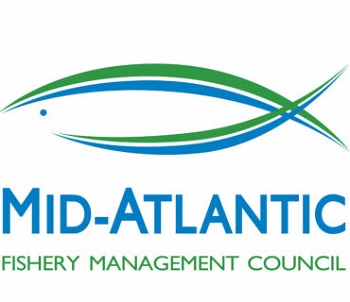
Mass, R.I. Public Hearing: Summer Flounder, Scup, Black Sea Bass Commercial/Recreational Allocation Amendment
Might want to get this out there- it’s going to be important the industry get involved. Tell the Council status quo! Comments may be submitted at any of five virtual public hearings to be held between February 17 and March 2, 2021 or via written comment until March 16, 2021. Wednesday, February 17, 6:00 – 8:00 p.m.: Massachusetts and Rhode Island, Thursday, February 18, New Jersey, Wednesday, February 24, Delaware and Maryland, Monday, March 1, 6:00 – 8:00 p.m.: Virginia and North Carolina, Tuesday, March 2, 6:00 – 8:00 p.m.: Connecticut and New York >click to read< 16:10
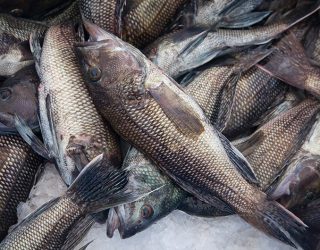
Summer founder, sea bass and scup are on the docket for upcoming public hearings focused on allocation percentages
The Mid-Atlantic Fishery Management Council (Council) and the Atlantic States Marine Fisheries Commission (Commission) have scheduled a series of scoping hearings to gather public input on the range of issues and information to be considered in the Summer Flounder, Scup, and Black Sea Bass Commercial/Recreational Allocation Amendment. Hearings will be held February 13 – March 3. Written comments will be accepted through March 17, 2020. All comments provided at public hearings or in writing will be presented to the Council and Commission. Lots of info, >click to read< 14:03

Assessment Oversight Panel (AOP) meeting for Monkfish, Scup, Bluefish, Black Sea Bass, May 20, 2019,
The Northeast Fisheries Science Center would like to inform you of the 2019 stock assessments.,,, There will be several sets of assessments conducted this year, and the assessment process begins for Scup, Bluefish, Black Sea Bass, and Monkfish on Monday May 20, 2019 with a panel review of scientific information and assessment plans (details below). After this plan review, the assessments will be conducted and later peer reviewed in 2019. Attend In Person, >click to read< or online, >click to register<13:59

Scup, Bluefish, Black Sea Bass, and Monkfish – 2019 Fisheries Stock Assessments
The Northeast Fisheries Science Center would like to inform you of the 2019 stock assessments. During these assessments we will use existing models and data sources to evaluate stock health. Our data come from a variety of sources, including recreational and commercial fishermen, fish dealers, fishery observers, and research surveys. There will be several sets of assessments conducted this year, and the assessment process begins for Scup, Bluefish, Black Sea Bass, and Monkfish on Monday May 20, 2019 with a panel review of scientific information and assessment plans (details below). After this plan review, the assessments will be conducted and later peer reviewed in 2019. >click to read<09:49

New York State Department of Environmental Conservation Announces Emergency Regulations for Scup
Increased Possession Limit Will Benefit New York Commercial Fishing Industry The New York State Department of Environmental Conservation (DEC) adopted emergency regulations, effective immediately, to increase the incidental possession limit for the commercial scup fishery from 200 to 2,000 pounds through June 15. This exemption allows commercial harvesters in the small-mesh squid fishery to keep and sell more scup, resulting in increased income for commercial harvesters. The rule change will also reduce waste in the fishery by preventing dead scup from being discarded overboard due to the prior lower harvest limit. >click to read<11:37

2018 Mass. DMF fishing regulations go into effect April 20
The Division of Marine Fisheries (DMF) has enacted new regulations, which were informed in part by this winter’s public hearings. The regulations were reviewed and approved by the Marine Fisheries Advisory Commission at its March 15 meeting, and go into effect on April 20. The most substantive change is an adjustment to the open commercial fishing days for black sea bass. The new open commercial fishing days are Sundays, Tuesdays, and Thursdays.,, The commercial black sea bass season will begin on Tuesday, July 10.,, During the inshore small-mesh trawl squid fishery, April 23–June 9, trawlers will be allowed to retain a 50-pound bycatch limit of black sea bass. >click to read<18:00
NOAA Fisheries Seeks Comments on Proposed Scup Quotas
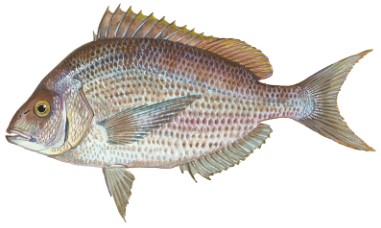 NOAA Fisheries proposes to revise the 2018 quotas and announce projected 2019 quotas for the scup fishery. Compared to the current specifications in place for 2018, this action would increase the commercial quotas and recreational harvest limits each by approximately 40 percent. The recent scup stock assessment update indicated that the stock is not overfished and overfishing did not occur in 2016. The update also showed that the 2015 year class was about 2.1 times larger than the average recruitment (i.e., number of age 0 scup) from 1984 to 2016. huh! click here to read the press release 17:28
NOAA Fisheries proposes to revise the 2018 quotas and announce projected 2019 quotas for the scup fishery. Compared to the current specifications in place for 2018, this action would increase the commercial quotas and recreational harvest limits each by approximately 40 percent. The recent scup stock assessment update indicated that the stock is not overfished and overfishing did not occur in 2016. The update also showed that the 2015 year class was about 2.1 times larger than the average recruitment (i.e., number of age 0 scup) from 1984 to 2016. huh! click here to read the press release 17:28
NY Commercial fishermen reeling from shutdown of fluke fishery
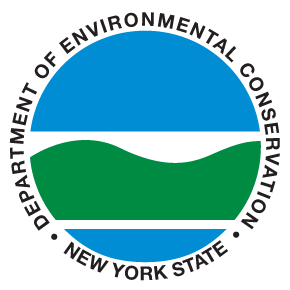 It was the busy Labor Day Weekend, and Southold Fish Market owner Charlie Manwaring had been forced to stock his popular East End restaurant and market with out-of-state fluke for the first time in recent memory. “This is my backyard, and on a holiday weekend I have no fluke,” he complained to Rep. Lee Zeldin (R-Shirley) at a meeting Friday morning with two dozen angry Long Island fishermen and women at the Mattituck fishing dock. “I have to rely on Rhode Island and Jersey and Massachusetts and Carolina.”. “The fluke paid our bills,” said Cindy Kaminsky, who fishes commercially out of Mattituck.,,, “Nobody’s been willing to stand up and say to lawmakers, ‘You need to make this fair to New York fishermen,’ ” said Southampton attorney Dan Rodgers of New York Fish, an advocacy group. click here to read the story 17:42
It was the busy Labor Day Weekend, and Southold Fish Market owner Charlie Manwaring had been forced to stock his popular East End restaurant and market with out-of-state fluke for the first time in recent memory. “This is my backyard, and on a holiday weekend I have no fluke,” he complained to Rep. Lee Zeldin (R-Shirley) at a meeting Friday morning with two dozen angry Long Island fishermen and women at the Mattituck fishing dock. “I have to rely on Rhode Island and Jersey and Massachusetts and Carolina.”. “The fluke paid our bills,” said Cindy Kaminsky, who fishes commercially out of Mattituck.,,, “Nobody’s been willing to stand up and say to lawmakers, ‘You need to make this fair to New York fishermen,’ ” said Southampton attorney Dan Rodgers of New York Fish, an advocacy group. click here to read the story 17:42
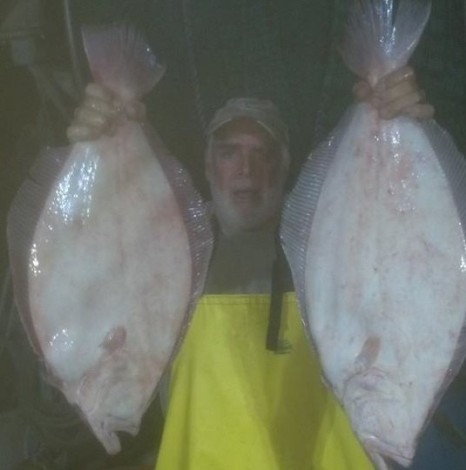
A little story about my day at sea yesterday
So we leave to go fishing at 0330 with an observer that the government forces us to take. Now the young man is a likable enough guy who I have no problem with. The problem is we are forced to take these people with no exception. When they tell you they are going to put one on your boat you either take them or you deal with the wrath of NOAA law enforcement. So we go out with the plan of going to catch some scup, fluke and sea bass to unload in Connecticut. We had some nice scup the day before and figured we would get CT’s allowance which is a whopping 1200 pounds of scup, 75 lbs. of fluke and 10 sea bass in count. So we make a couple of tows and come up a bit light on the scup but have the fluke and sea bass. We go and unload ion CT. and on the way there, which happens to be a 2 hour+ steam each way I am informed that the scup that we landed the previous day which had been paying around 60 cents per pound had dropped to 10 to 15 cents per pound. Not even worth the fuel to catch. WONDERFUL. So we go all the way to CT. , unload our catch and head back another 2+ hours for home. After we get back to our dock, I and my crewman are cleaning up the boat and we notice someone on the dock with a camera taking pictures of us as he walks by. No big deal.,,, Click here to read the story 10:24
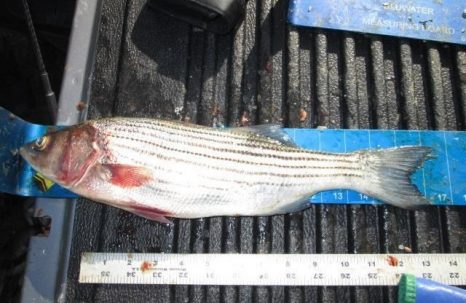
Recreational Fishermen caught with nearly 300 more black sea bass than allowed
On just the second day of the black sea bass fishing season, two boats of fishermen were caught by harbormasters with nearly 300 more of the black sea bass than allowed in the recreational limit. The Wareham Harbormaster Department alerted the Massachusetts Environmental Police to the two boats on Sunday at the Tempest Knob Public boat ramp. When officers inspected the first boat, which had four people aboard, they found multiple coolers that contained 225 more black sea bass than the recreational limit allows, Environmental Police said. Fifty-nine of those fish were smaller than the 15-inch limit. That boat also had 98 more scup than legal possession limit, as well as two undersized tautog and one 17-inch striped bass. Click here to read the story 17:25
MAFMC and ASMFC Actions on Black Sea Bass, Bluefish, Scup and Summer Flounder
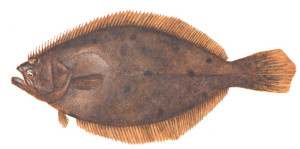 Last week the Mid-Atlantic Fishery Management Council (Council) and the Atlantic States Marine Fisheries Commission (Commission) reviewed previously implemented specifications for scup, black sea bass and bluefish fisheries and modified specifications for summer flounder. The Commission’s actions are final and apply to state waters. The Council will forward its federal waters recommendations regarding summer flounder specifications to NOAA Fisheries Greater Atlantic Regional Fisheries Administrator for final approval. For summer flounder, both groups approved a commercial quota of 5.66 million pounds and a recreational harvest limit of 3.77 million pounds for 2017, an approximate 30% decrease from 2016. This decrease in catch and landings limits responds to the findings of the 2016 stock assessment update, which indicates summer flounder has been experiencing overfishing since 2008. Read the rest here 12:06
Last week the Mid-Atlantic Fishery Management Council (Council) and the Atlantic States Marine Fisheries Commission (Commission) reviewed previously implemented specifications for scup, black sea bass and bluefish fisheries and modified specifications for summer flounder. The Commission’s actions are final and apply to state waters. The Council will forward its federal waters recommendations regarding summer flounder specifications to NOAA Fisheries Greater Atlantic Regional Fisheries Administrator for final approval. For summer flounder, both groups approved a commercial quota of 5.66 million pounds and a recreational harvest limit of 3.77 million pounds for 2017, an approximate 30% decrease from 2016. This decrease in catch and landings limits responds to the findings of the 2016 stock assessment update, which indicates summer flounder has been experiencing overfishing since 2008. Read the rest here 12:06
NMFS Announces 2016-2018 Regs for Summer Flounder, Scup and Black Sea Bass

Raising The Profile Of An Undereaten Fish
Fishermen are facing tougher quotas and declining populations for some of the most popular fish species, most notably Cod, a New England favorite. That’s one reason why environmentalists and fishermen have been working to promote more locally-caught seafood. Some, like lobster, quahogs, and other shellfish are catching on. But there are other fish that teem the waters of Narragansett Bay. There’s one effort underway to raise awareness about scup, an abundant local catch. Audio, Read the rest here 06:54
Mid-Atlantic Fishery Management Council Proposed Management Measures for the 2013 Summer Flounder, Scup, and Black Sea Bass Recreational Fisheries
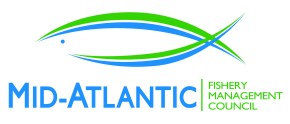 Based on recommendations of the Mid-Atlantic Fishery Management Council, NOAA Fisheries is proposing to increase the overall catch limits for the 2013 and 2014 black sea bass fishery by approximately 1 million pounds.This results in an increase of approximately 0.41 million pounds for the recreational black sea bass fishery, and a 0.39 million pound increase for the commercial fishery. summer flounder, scup recreational, continued
Based on recommendations of the Mid-Atlantic Fishery Management Council, NOAA Fisheries is proposing to increase the overall catch limits for the 2013 and 2014 black sea bass fishery by approximately 1 million pounds.This results in an increase of approximately 0.41 million pounds for the recreational black sea bass fishery, and a 0.39 million pound increase for the commercial fishery. summer flounder, scup recreational, continued
The Rhode Island Marine Fisheries Council (RIMFC) held meeting in preparation of November 8, 2012 public hearing
Captain Dave Monti. The Rhode Island Marine Fisheries Council (RIMFC) held commercial fluke (summer flounder), scup/black sea bass and herring advisory panel meetings on October 2 in preparation for a Thursday, November 8, 2012 public hearing. The purpose of the advisory panels is to provide industry (fishermen) and the general public with the opportunity to offer input and proposals to be considered at public hearing.
Advisory panels reviewed Department of Environmental Management (DEM) presentations on stock assessment, historical fishing activity and allocations. The November 8th public hearing on proposed management plan changes is scheduled for 6:00 p.m. at the University of Rhode Island, Graduate School of Oceanography, Corless Auditorium, South Ferry Road, Narragansett, RI. Commercial and recreational fishermen are urged to attend and provide input on proposals.






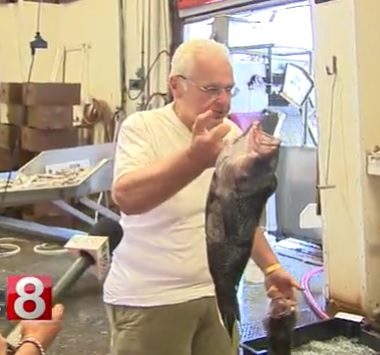




























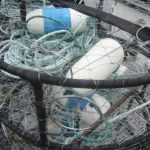
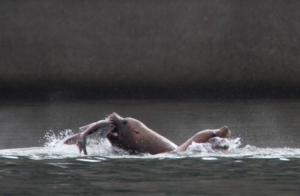
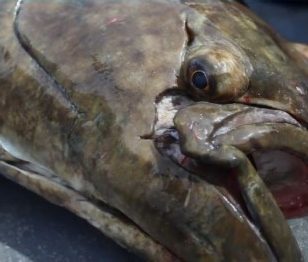
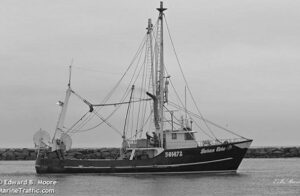

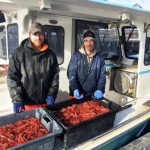

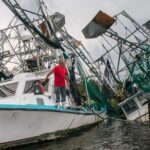




Public Hearings for Summer Flounder, Scup, and Black Sea Bass Commercial/Recreational Allocation Amendment
The Mid-Atlantic Fishery Management Council (Council) and the Atlantic States Marine Fisheries Commission (Commission) are seeking public comment on the Summer Flounder, Scup, and Black Sea Bass Commercial/Recreational Allocation Amendment. Comments may be submitted at any of five virtual public hearings to be held between February 17 and March 2, 2021 or via written comment until March 16, 2021. >click to read, click for links< 12:41
Share this post